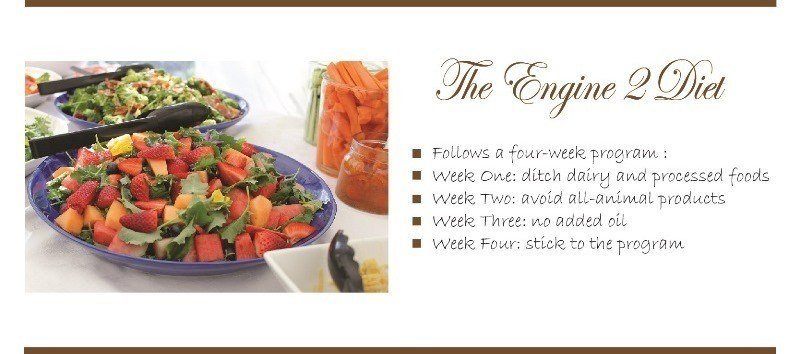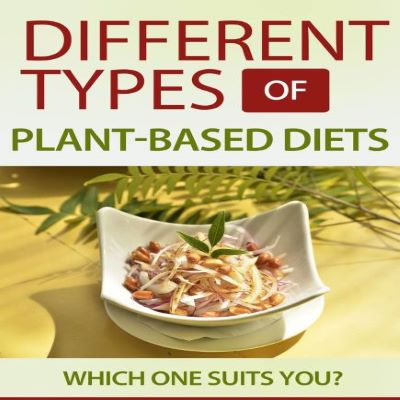Types of Plant-based diets and their variations
“Plant-based diet” is a broad term with different definitions. The goal of a plant-based diet is always to provide optimum health, and because opinions vary on how this might be achieved, diverse types of plant-based diets have evolved.
Each of these has food recommendations that make their type specific. Some are very explicit and strict, while others seek to offer guidelines regarding inclusions and exclusions.
Here are a few of the better-known plant-based diets. If you are considering making the change, these diverse diets will give you an idea which one might suit your dietary choices.
The term “flexitarian” was coined from the words flexible and vegetarian. A flexitarian diet does not require complete abstinence from meat products.
You can eat a little meat occasionally and still enjoy the health benefits of a plant-based diet. Followers of this diet are sometimes referred to as casual vegetarians, as they are not as strict with their food guidelines as traditional vegetarians.

Vegetarians eat mostly fruits and vegetables and refrain from eating certain foods depending on what type of vegetarian they choose to be.
Lacto-ovo vegetarians add eggs and dairy products to their plant-based diet, whereas lacto-vegetarians consume dairy products but refrain from eating eggs. A third type of vegetarian is the ovo-vegetarian who prefers to eat eggs but avoids dairy products.
Vegan diets are similar to but stricter than vegetarian diets, as they do not add to their plant-based diet.
Vegans do not eat eggs or dairy products and refrain from eating and using any animal-derived products. Even honey is not used in a vegan diet, which is one of the most followed types of plant-based diets.

A Mediterranean diet is considered plant-based and emphasizes the consumption of vegetables, fruits, beans, whole grains, legumes, and nuts. Spices, herbs, and olive oil are also regularly used.
Seafood may be consumed a few times a week, while eggs, yogurt, cheese, and poultry are enjoyed in moderation. Red meat and desserts are enjoyed occasionally.
Red wine is also considered an integral part of the Mediterranean diet. Since this is more of an eating pattern and not a structured diet, you have the freedom to decide how to balance your daily meals to meet your weight loss goals or calorie requirements.

This diet recommends eating fruits and vegetables that are, if possible, organic. You can only consume up to two glasses of organic red wine daily. You can consume herbs and spices as much as you want. This diet also encourages you to eat various Asian mushrooms such as oyster, maitake, shiitake, and enoki Dake.
Whole Food Plant-Based Diet and Engine 2 Diet
When referring to the whole-food plant-based diet or the (Engine 2) plant-strong diet, I am indeed discussing the same diet or lifestyle. The former is grounded in the findings of the China Study and the Forks Over Knives research, while the Plant-Strong movement has its roots in the work of Engine 2 Founder Rip Esselstyn.
Food should nourish rather than harm the body. This represents a shift in human behavior. People are in dire need of nutrition. It's not just a one-off requirement; we need our essential nutrients and minerals on a daily basis, and the most effective way to obtain them is by following a plant-strong diet.

In this diet, rice is the daily staple, along with noodles, millet, breads, whole grains, and corn. Seeds, nuts, legumes, vegetables, vegetable oils, and fruits are also regularly consumed. Shellfish, fish, poultry, and eggs can also be eaten daily.
Any sweet dessert can be enjoyed once a week, while red meat can be eaten monthly.
The traditional Asian diet also allows beer, sake, and wine in moderation.
This diet recommends a specific proportion of calories consumed to be made up of proteins, carbohydrates, and fats. For example, 26% of your caloric intake must be carbohydrates sourced from whole grains, fruits, and vegetables. Protein intake must be 31% from plant sources such as seeds, nuts, lentils, beans, and soy.
43% of your daily intake is vegetable fats, which come from foods such as avocado, nuts, olive oil, and coconut oil.
This diet is more than just eating plant-based foods. It promotes balance and a holistic lifestyle. There are lots of dos and don’ts in this diet and some macrobiotic dieters even go further than just following diet guidelines. Some do not even use electricity; therefore, they do not have an electric stove or fridge.
The macrobiotic dieter likes to eat whole foods, free from pesticides, to obtain the ‘energy’ in the foods. Whole grains are the mainstay in this diet, followed by vegetables. Of course, fruit is allowed and so too are nuts.
You can also eat a small amount of fish, but only if freshly caught.
If you feel like a sweet indulgence, try desserts that are sweetened by natural rice syrup, maple syrup, barley malt, and other sweet fruits. Oh, and you aren’t allowed snacks in between meals.
The Ornish Diet requires eating mostly vegetables, grains, and fruits. It also requires very little fat and lots of fiber to feel full. If you eat dairy, always opt for low-fat or non-fat. Your total caloric intake must comprise only 10% fat. Red and white meats, as well as other fat- and oil-containing foods such as avocados, nuts, olives, and full-fat dairy products, are avoided. While this diet recommends eating smaller meals more often, you must be extremely careful not to overeat to combat hunger.
In this diet, you will typically eat fresh fruits and vegetables while ensuring that all other foods are in their closest natural state. This is because proponents of the raw food diet believe that cooking destroys most of the natural nutrients that the food contains. Therefore, you will find yourself eating more foods that require less or no cooking at all. This diet includes a lot of fruit, such as bananas, avocado, apples, young coconut, lemon, and blueberries. Vegetable staples include celery, bell peppers, spinach, kale, lettuce, tomato, and zucchini; however, they are not limited to these.
As explained in the document, there is not simply one plant-based diet. Hopefully, the information you have just absorbed will provide insight into which diet is right for you. Anyone changing from a traditional meat-based diet must change their attitude towards what they eat.
You will now be aware that diet variations exist, each with some structure and some with specific rules. This means that most people can make the change to a plant-based diet that suits their lifestyle, goals, and attitudes.
The bottom line is that plant-based diets are about improved health, which is a noble goal.
Now you have reviewed some of the more popular plant-based diets, which one would you choose?
Whether you’re already a convert and just want a dietary reboot, or you’re trying a plant-based diet for the first time, The Forks Over Knives Plan makes it easier to transition to this healthiest way of eating…and maintain it for life.
Join the Physicians Committee’s 21-Day Vegan Kickstart to receive meal plans, recipes, and advice from nutrition experts. This service is free and will help you take control of your health with a vegan diet
The 21-Day Vegan Kickstart is supported by decades of research showing that a plant-based diet can help you reach a healthy weight and lower your risk for heart disease, type 2 diabetes, and other chronic diseases. Our low-fat plant-based recipes, developed by chefs, dietitians, and experts in vegan cuisine, provide nutritious meals that are both healthy and delicious. Within 21 days you will start to see results and won’t look back! via – 21-Day Vegan Kickstart
Below are other great resources to help you get on the right track.
The Plant-Based Solution: America’s Healthy Heart Doc’s Plan to Power Your Health
How Not to Die: Discover the Foods Scientifically Proven to Prevent and Reverse Disease
The Forks Over Knives Plan: How to Transition to the Life-Saving, Whole-Food, Plant-Based Diet
Did you enjoy reading this post?
I trust you found this post enjoyable. If so, kindly use the buttons below to share it with family and friends who might find the information beneficial.
Express your opinion
If you have any questions or wish to share your opinions, feel free to express them in the comments section below.









0 comments